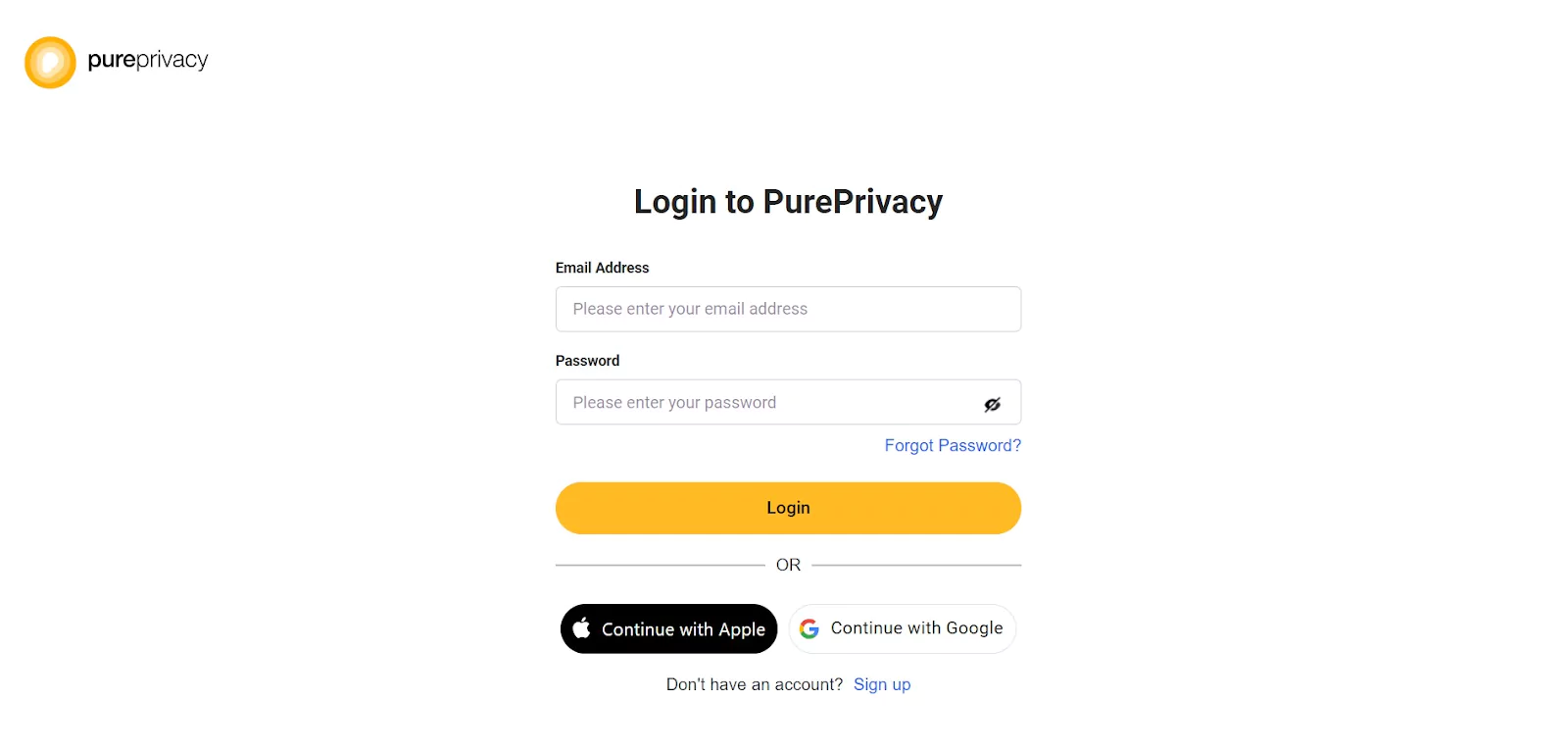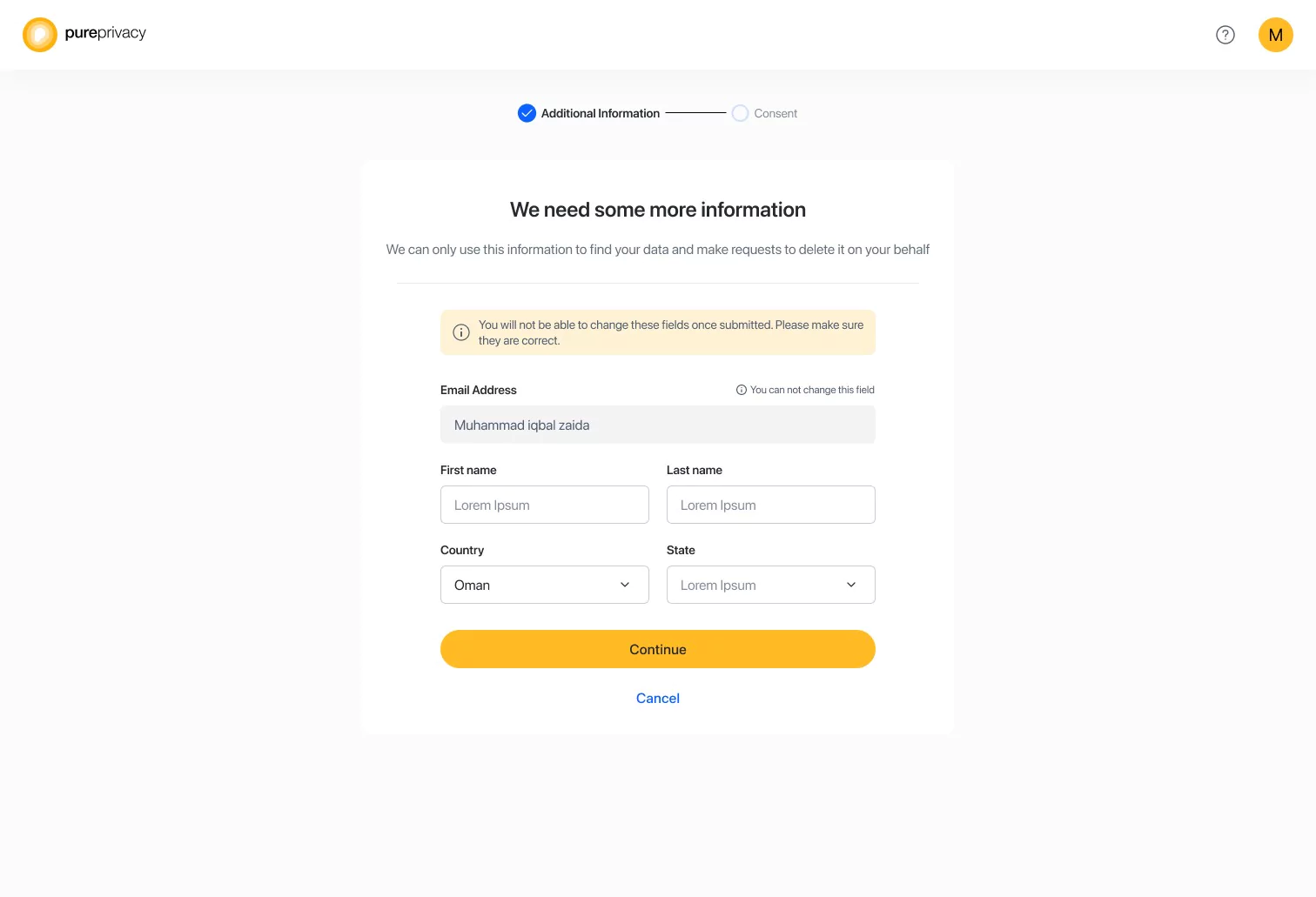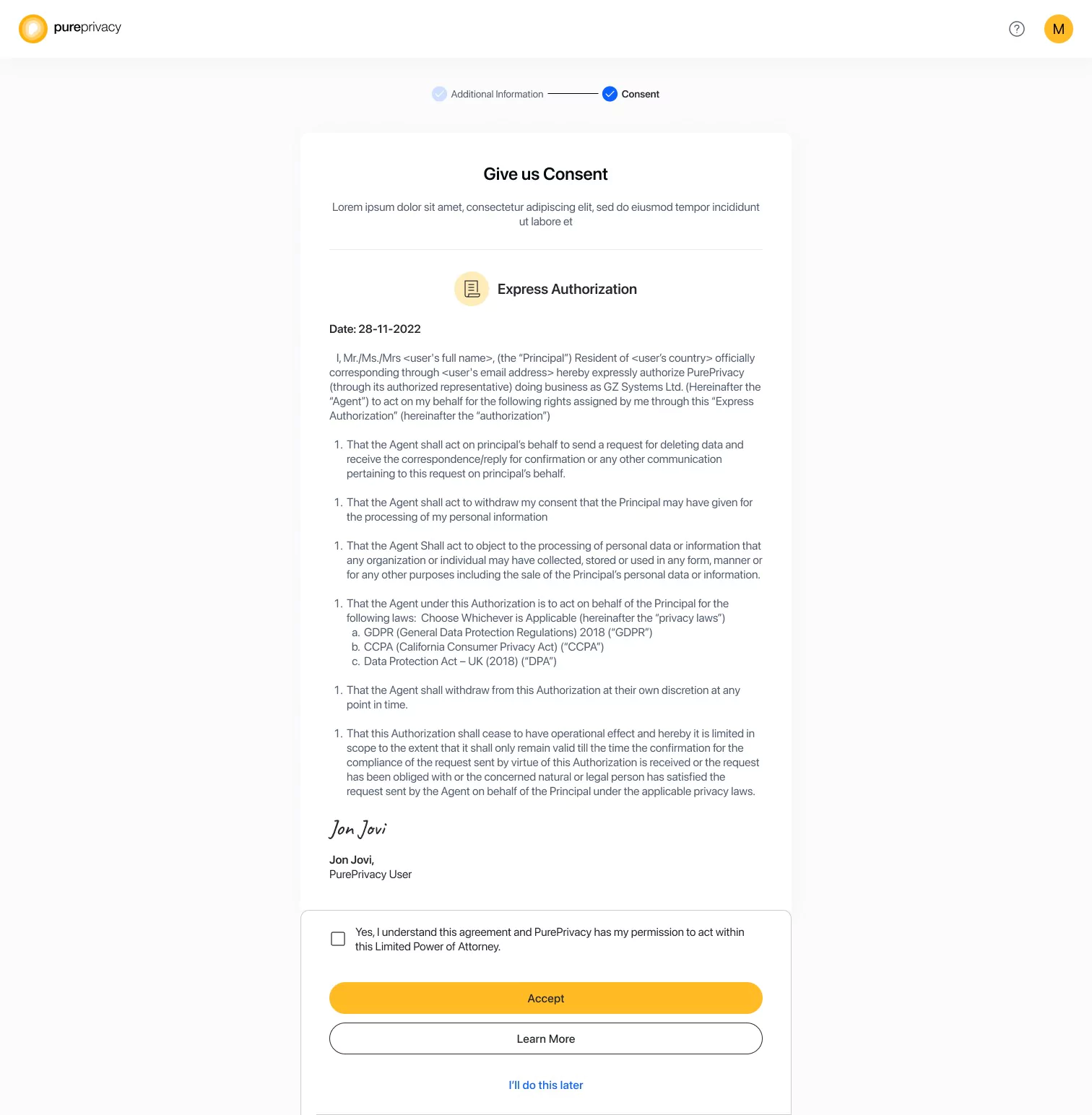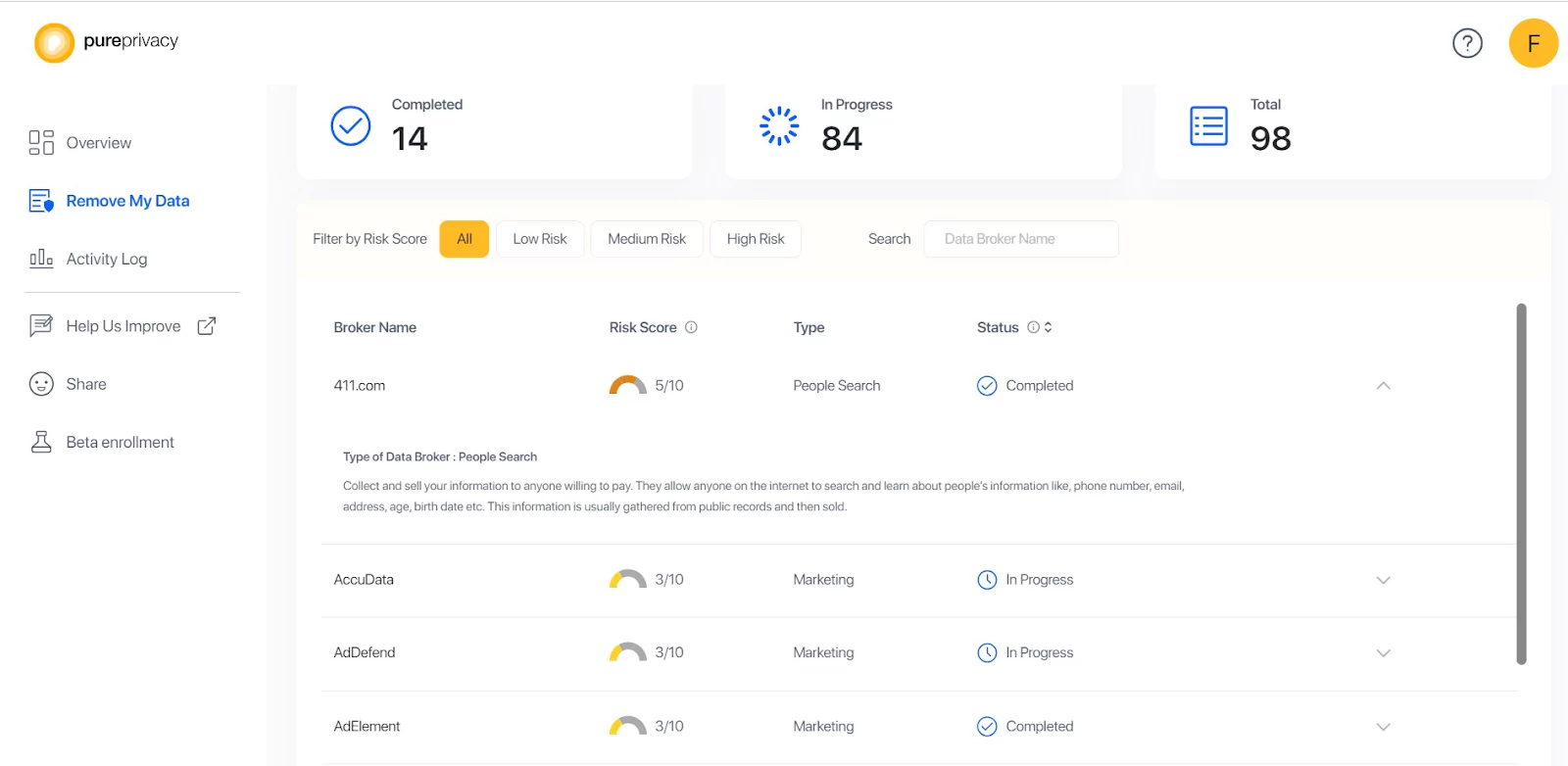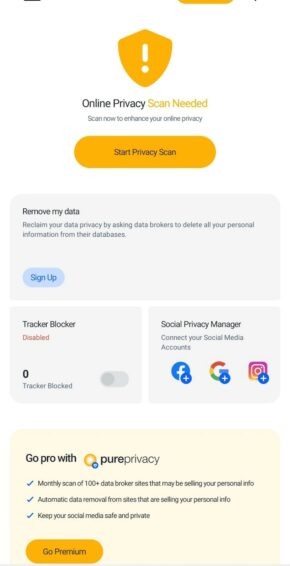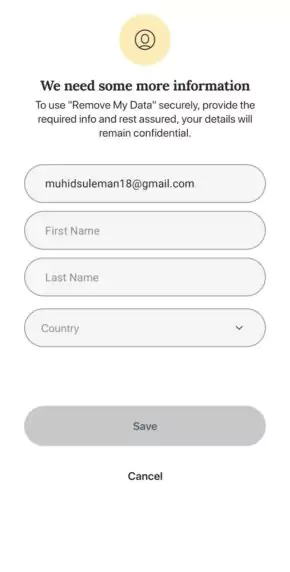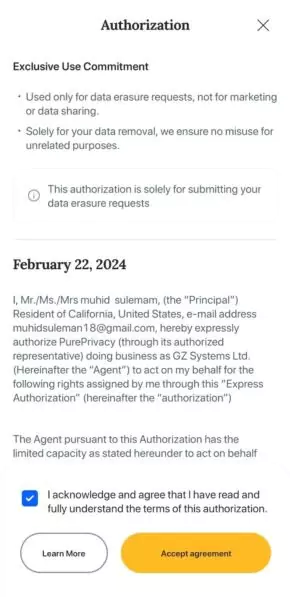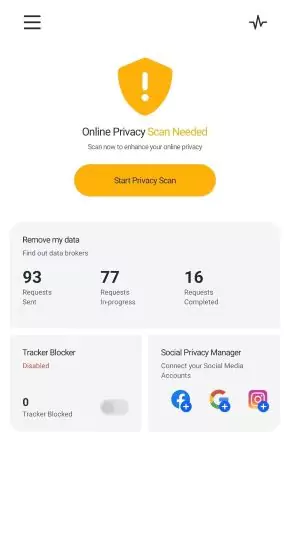Table of Content
- What is Affinity?
- How Does Affinity Collect My Information?
- Why Is It Important to Opt Out of Affinity?
- How to Opt-Out of Affinity and Delete Your Information
- Opt-Out of Multiple Data Brokers Using PurePrivacy
- Steps to Opt-Out Using PurePrivacy
- Manually Opt-Out Method Vs. Opt-Out With PurePrivacy
- Frequently Asked Questions (FAQs)
In April 2024, over 5 billion records were breached, affecting millions of people. This is much higher than the previous record of 353 million individuals affected in 2023.
It's concerning to see more and more data breaches happening.
Data breaches can mess up your identity. It's important to be safe online and protect yourself from these dangers.
Learn how to opt out of Affinity and regain control over your online identity by removing all your information.
What is Affinity?
Affinity is a company that helps businesses understand what people purchase. It analyzes data from thousands of credit and debit card transactions to create reports that tell businesses which customers might buy a specific product. This information helps businesses better target their ads and conduct their marketing campaigns.
How Does Affinity Collect My Information?
Affinity, the company that makes Affinity Publisher or Designer software, collects your information in two main ways:
From You Directly
This happens when you make an account on their website, buy software, or join their newsletter. They collect information like your name, email, and payment details.
From Website Cookies
Affinity uses cookies, tiny files saved on your web browser, to track what you do on their site. This helps them see how you use the site and make it better for you. But they say these cookies don't keep personal information like your name or address.
Why Is It Important to Opt Out of Affinity?
Deciding to opt out of Affinity depends on your comfort level with data privacy. Here's a breakdown to help you decide:
Privacy Concerns
Opting out means Affinity won't track all your credit card purchases and website activity unless it's necessary for their basic services. It's good for minimal data collection.
Targeted Advertising
Affinity shows you ads based on what you like. If you opt out, you might see fewer personalized ads, which some people prefer because they feel personalized ads are too invasive.
How to Opt-Out of Affinity and Delete Your Information
Step 1: Visit their website here.

Step 2: Scroll down to the bottom of the page and click on the option “Do Not Sell.”

Step 3: Fill out the complete form then perform the CAPTCHA and click on “Submit”.

Step 4: Check your inbox for your request confirmation link.

Step 5: Click on the link.

Your request has been confirmed successfully.

And that's how you can opt out of Affinity.
Avoiding companies like Affinity is a good start, but you need PurePrivacy to protect your online information truly.
It stops companies from collecting data without permission and boosts online privacy.
Opt-Out of Multiple Data Brokers Using PurePrivacy
PurePrivacy is like a shield that keeps your information safe and lets you decide who gets to see it online.
It makes sure your data stays private unless you permit it to share it.
How does PurePrivacy work:
Privacy Protection
PurePrivacy helps keep your online activities private by removing your data from data brokers' databases and preventing them from selling your information to advertisers.
Transparent Monitoring
You can easily see which data brokers have your information and track the progress of removal requests through a user-friendly dashboard.
Risk Management
PurePrivacy gives each data broker a risk score based on the sensitivity of the data they collect. This score helps you determine the privacy risk each broker poses.
Enhanced Security
The tracker blocker stops other companies from tracking your online activities, such as your visited websites or what you search for. This means you'll see fewer personalized ads and keep your online activities private.
Convenient Communication
PurePrivacy makes it easier for you to talk to data brokers. You can ask them to delete your data without any difficulty. This way, your privacy choices are followed and respected.
Steps to Opt-Out Using PurePrivacy
Manually Opt-Out Method Vs. Opt-Out With PurePrivacy
- Takes a lot of time and effort.
- Success rates vary, so we are unsure if requests are effective.
- Users may not know which brokers have data or request status.
- Saves time by sending removal requests automatically.
- Ensures consistent process, regularly sends requests to all brokers
- Offers a dashboard to track progress and sends weekly email updates.
Frequently Asked Questions (FAQs)
-
Does Affinity sell my data?

No, Affinity doesn't sell your data. They're focused on keeping your information safe and won't share it without asking you first. PurePrivacy adds an extra layer of protection by making sure your data isn't sold or misused, taking it off Affinity and other data brokers.
-
How does Affinity ensure the security of the data it collects?

Affinity uses security tools like encryption and access controls to keep your data safe. However, you can not be sure how the data will be used later, so it is always wise to stay protected by using privacy management apps, such as PurePrivacy.
-
Can users control how their data is used and shared by Affinity?

Users might have some control over how their data is used and shared by Affinity, but there could still be limitations or uncertainties about exactly how much control they have.
-
How can I protect myself from identity theft through Affinity's data collection?

While Affinity collects data, you can minimize identity theft risk. You must review its privacy policy and understand what data it collects and how it uses it. Consider solid passwords and monitor credit reports for suspicious activity.
Prevent Data Breaches by Removing Your Information
Affinity might share your data with other companies, but you can opt out of it whenever you want.
Remember, your data is valuable, so be careful who you share it with!
PurePrivacy keeps your data safe by only sharing it with people or companies you trust.


